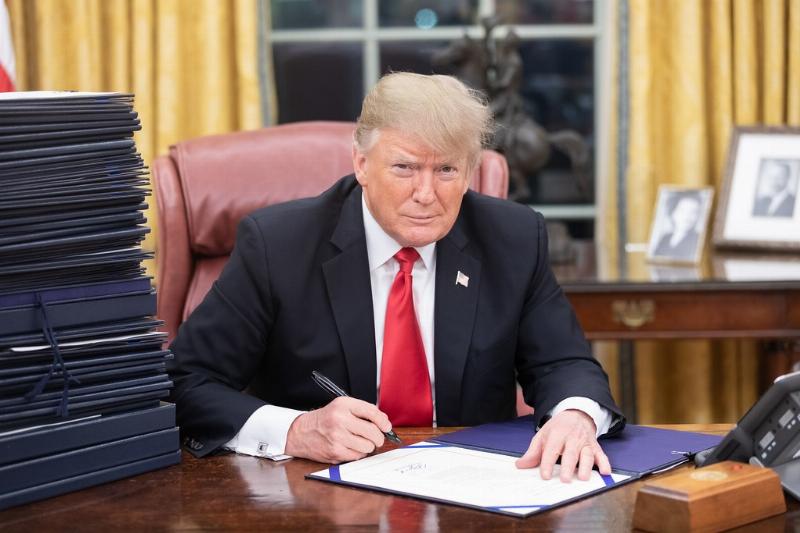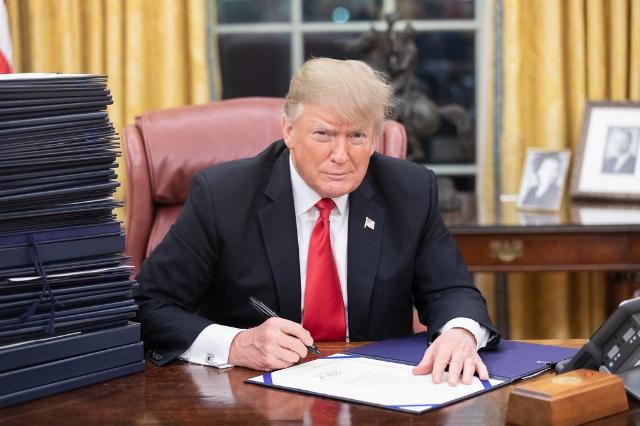


President Trump was famously “debanked” by Bank of America and Chase after his first term, despite being a literal billionaire and having excellent credit. While it’s easy to assume it won’t happen to you, the facts are, ordinary people routinely suffer this same persecution for their political views, religious beliefs, or industry affiliation.
Last week, President Trump signed an executive order called, “Guaranteeing Fair Banking for all Americans.” What is entailed in the EO?
For one thing, the EO removes the ability of banks to deny services to creditworthy businesses. In addition, “reputational risk” has been removed from the review criteria, and the FIRM Act, introduced by South Carolina senator Tim Scott, proposes to codify the president’s executive order into federal law:
The FIRM Act would statutorily eliminate ‘reputational risk’ as a supervisory measure by removing all references from safety and soundness determinations, prohibiting federal banking agencies from promulgating new rules using reputation risk, and requiring agencies to report to Congress on their elimination of reputation risk from supervisory frameworks. Chairman Scott characterized the FIRM Act as addressing the ‘weaponization of federal banking agencies,’ stating that ‘federal regulators have abused reputation risk by carrying out a political agenda against federally legal businesses.’
In other words, banks would no longer have the legal latitude to discriminate against organizations such as firearms businesses, non-profit religious groups, and political groups. Several states are already ahead of the curve, having passed legislation to protect customers:
Tennessee enacted a fair access law on April 22, 2024, prohibiting financial institutions and insurers from denying services based on political views, religious beliefs, or any factor that is not a quantitative, impartial, and risk-based standard. Florida expanded its fair access law in May 2024, extending coverage to out-of-state financial institutions doing business in Florida and establishing a customer complaint process with the state’s Office of Financial Regulation. Similar legislation has been introduced in nine additional states: Arizona, Georgia, Idaho, Indiana, Iowa, Kentucky, Louisiana, South Dakota, and South Carolina, demonstrating growing momentum for state-level fair access protections.
Debanking has not necessarily been an across-the-board practice, as it’s most frequently been used by the largest banks:
According to members of the Senate Committee on Banking, Bank of America ‘was the subject of 988 improper closure complaints and 584 improper account denial complaints.’ JPMorgan Chase ‘was the subject of 1,423 improper closure complaints and 443 improper account denial complaints,’ and in 2021, Chase closed the account of retired former National Security Adviser Gen. Michael Flynn’s nonprofit, citing ‘reputational risk.’
Wells Fargo ‘was the subject of 1,053 improper closure complaints and 35 improper account denial complaints ‘it has faced allegations of closing long-standing customer accounts in ‘high-risk’ categories, like firearms dealers.
Citigroup ‘was the subject of 742 improper closure complaints and 96 improper account denial complaints,’ including closing personal and business accounts of Armenian Americans.
There’s no way to know if this list is complete.
Fortunately, the executive order states specific deadlines for the regulators to respond to these requirements:
- Within 120 days, per Section 5(b), regulators must identify financial institutions with ‘past or current, formal or informal, policies or practices that require, encourage, or otherwise influence such financial institution to engage in politicized or unlawful debanking and to take appropriate remedial action,’ including levying fines, issuing consent decrees, or imposing other disciplinary measures for violations of applicable law.
- Within 180 days, per Section 5(c), regulators must review supervisory and complaint data to identify institutions that engaged in unlawful debanking based on religion and, if appropriate, refer such matters to the Attorney General ‘for an appropriate civil action’ if the institution ‘is unable to obtain compliance within the meaning of 15 U.S.C. 1691 and 1691e(g)’ under the Equal Credit Opportunity Act (ECOA).
But the best part of these legal remedies is that they actually empower and protect the U.S. citizen:
Most Americans who have had their accounts closed are not money launderers, cybercriminals, militia leaders or threats to national security. They are citizens. Taxpayers. Workers. Innovators. Parents. Patriots. They are being punished not for what they’ve done, but for how they are perceived.
Without question, banks must guard against criminality. But they should do so with discernment, discretion and decency. Otherwise, they are not protecting consumers. They are prosecuting them.
And in America, that just ain’t right.

Image: Public domain.
